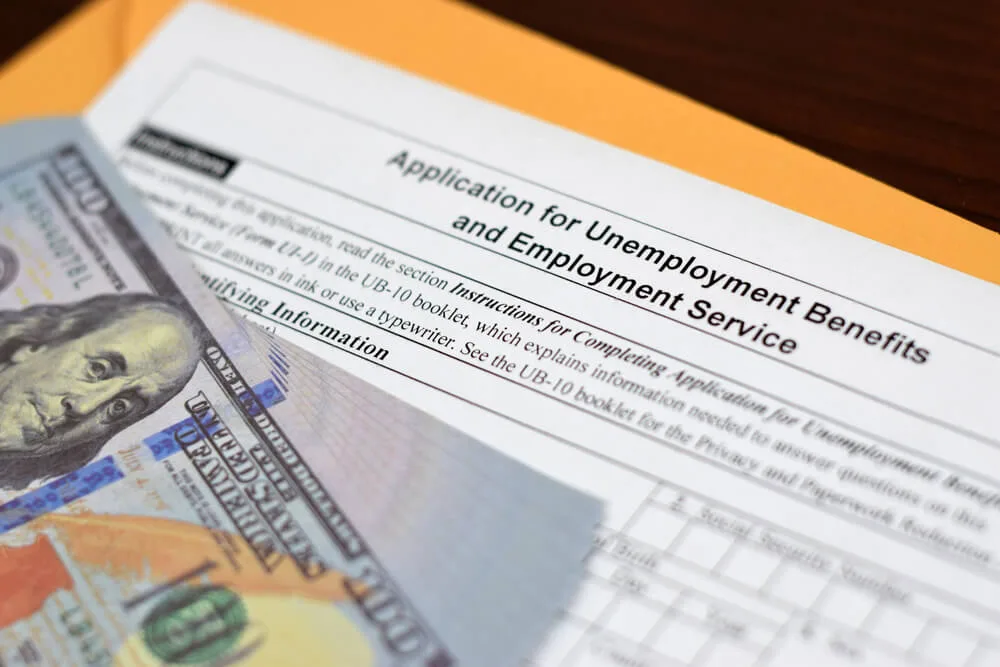
Some Arizonans are receiving bills for tens of thousands of dollars the government claims they were overpaid in unemployment.
When the COVID-19 pandemic hit in 2020, businesses and other places of work were closing down and laying off workers left and right.
As a result, a much higher number of Arizonans than normal were applying for unemployment.
The results were messy—people reported having extreme difficulty in reaching the Arizona Department of Economic Security for assistance, and others reported waiting months for their payments. Some people’s claims were incorrectly identified as fraudulent and had their accounts wiped out without warning, or were asked to pay them back.
Rep. Mitzi Epstein criticized the system then, telling The Copper Courier it has long been underfunded and outdated.
Since that time, some changes have been made, but Epstein said there still needs to be more done to make sure the system would be ready for another crisis.
What’s Changed
At the start of the pandemic, Arizona’s maximum weekly unemployment payment of $240 was the second-lowest in the nation. The federal government provided supplemental payments up to $600 a week, but those only lasted for a short period of time.
The Legislature voted in 2021 to raise Arizona’s amount to $320 per week—but Republicans insisted on adding in a stipulation that while unemployment normally lasts 26 weeks, if the statewide unemployment rate is under 5%, the payments are limited to 24 weeks.
According to the Center on Budget and Policy Priorities, most states offer a maximum of 26 weeks of unemployment. Ten states provide fewer weeks, and two—Massachusetts and Montana—provide more.
“I was not a fan of cutting the weeks,” Epstein said. “The dollars it saves the account are so small by comparison. I thought it was a wrong-sided economic choice.”
RELATED: Arizona’s Minimum Wage Will Go Up to $13.85 Next Year
Epstein said she would like to see the weekly maximum raised even higher to increase Arizonans’ economic stability.
“The purpose of an unemployment insurance system is to stabilize the economy, give people enough money that they do not have to dig drastically into their savings because those savings are so important to keep our economy going during downturns and upturns,” she said.
The Grand Canyon Institute recommends the state raise it to $490 a week to be more in line with surrounding states.
Another thing that’s changed is an increase in the disregard, or the amount a person can earn before their benefits are reduced. Previously the disregard was $30 a week and has been raised to $160.
“You might get gig work from time to time and that gig work might pay a few hundred dollars in a week,” Epstein explained. “Well, we want to encourage people to do that because every gig job you take helps you to get closer to getting the next full-time job.”
Asking for Money Back
One thing Epstein said that hasn’t gotten better is the Department of Economic Security’s customer service capabilities to help people work through problems with the system.
Epstein said she is aware of constituents who were told they were overpaid unemployment in 2020 and are receiving bills to repay the money.
“Now the government is coming after them and saying, ‘Oh, you owe us that $23,000 back,’” Epstein said. “There are even cases [where] we’re talking to people where they’re getting invoices from the UI system saying, ‘You owe us $30,000.’”
DES confirmed the agency issued overpayments of regular unemployment and pandemic unemployment assistance (PUA) to about 27,000 claimants—17,000 categorized as fraud, and 10,000 categorized as non-fraud—from the beginning of this year through June 30. The amount totaled around $121 million.
“DES takes many steps to prevent and reduce the frequency of overpayment situations, including working to educate claimants applying for unemployment, educating employers that report information about their employees to DES and carefully training our staff,” DES spokesperson Tasya Peterson said in an email to The Copper Courier.
Peterson said so far this year, DES has recovered over $20 million in overpayments from 2022.
This was also an issue in 2021, when Peterson said overpayments were issued to 43,000 claimants for a total of $58 million in regular unemployment, of which more than $46 million was recovered. DES didn’t begin issuing notices of overpayment for PUA until this year.
Getting the Bills Paid
Epstein said people are receiving the bills for overpayment without information like a timeline of their payments, and are having trouble reaching the agency to get their questions answered.
“The accounting seems a little … not transparent,” she said.
However, DES said claimants receive monthly statements that show activity for that month plus a balance. The agency said claimants who sign up for eStatements can view up to one year’s history of payments.
The federal government is encouraging states to waive the repayments in situations like these, and Epstein said she wants to see Gov. Doug Ducey take advantage of that.
“The folks who simply followed every rule they could find to follow, and did everything exactly as they should have—we should not be hitting them with these exorbitant bills,” she said.
Peterson said DES has focused on issuing notices of overpayment to PUA overpayments categorized as fraud, and that notices for overpayments categorized as non-fraud and administrative have not yet been sent, as the agency considers the option of waivers. She also noted that claimants can enter into a payment plan with the agency to pay back their balance over time.
“The Department is sensitive to the impact overpayment situations can have on claimants and we do all we can to assist in these situations while following federal and state laws,” Peterson said.
Looking for the latest Arizona news? Sign up for our FREE daily newsletter.
Support Our Cause
Thank you for taking the time to read our work. Before you go, we hope you'll consider supporting our values-driven journalism, which has always strived to make clear what's really at stake for Arizonans and our future.
Since day one, our goal here at The Copper Courier has always been to empower people across the state with fact-based news and information. We believe that when people are armed with knowledge about what's happening in their local, state, and federal governments—including who is working on their behalf and who is actively trying to block efforts aimed at improving the daily lives of Arizona families—they will be inspired to become civically engaged.


He said what? 10 things to know about RFK Jr.
The Kennedy family has long been considered “Democratic royalty.” But Robert F. Kennedy, Jr.—son of Robert F. Kennedy, who was assassinated while...

Here’s everything you need to know about this month’s Mercury retrograde
Does everything in your life feel a little more chaotic than usual? Or do you feel like misunderstandings are cropping up more frequently than they...

Arizona expects to be back at the center of election attacks. Its officials are going on offense
Republican Richer and Democrat Fontes are taking more aggressive steps than ever to rebuild trust with voters, knock down disinformation, and...

George Santos’ former treasurer running attack ads in Arizona with Dem-sounding PAC name
An unregistered, Republican-run political action committee from Texas with a deceptively Democratic name and ties to disgraced US Rep. George Santos...





